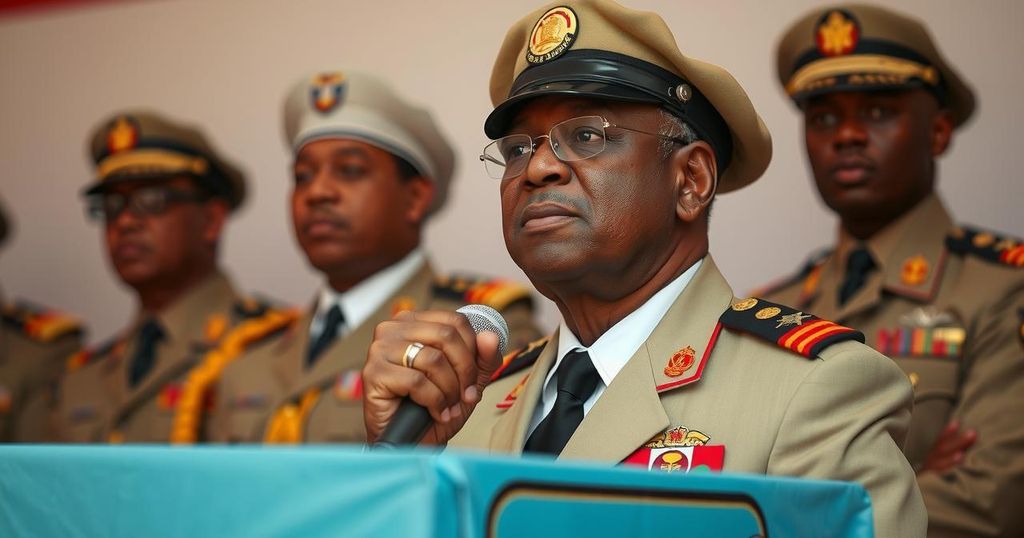Chad’s Elections: A Contested Step Towards Democratic Transition After Military Rule

Chad’s elections, comprising legislative, provincial, and local votes, are marked by an opposition boycott and accusations of electoral fraud. Marshal Mahamat Idriss Itno’s government faces scrutiny over its democratic transition amid concerns about voter integrity and political repression.
On Sunday, Chad held legislative, provincial, and local elections, which the government characterized as a pivotal step in its transition after three years of military governance. However, these elections faced significant opposition as key figures in the political landscape chose to boycott the process. This boycott allowed candidates who support Marshal Mahamat Idriss Itno, who took power through a military coup in 2021 and was subsequently elected in a May presidential election condemned by opponents as fraudulent, to dominate the electoral field.
Opposition leader Succes Masra advised voters to abstain from participating, describing the election as a facade built on dishonesty. “It is better to stay at home,” he stated, emphasizing the perception of electoral manipulation, suggesting that the election results had already been predetermined. Concerns regarding electoral integrity were echoed by the Democratic Party of the Chadian People (PDPT), which alleged that over a thousand ballots had inexplicably vanished in Bongor, calling for vigilance against potential fraud orchestrated by the ruling party.
Approximately eight million registered voters were eligible to cast their ballots, with polling stations open from 6 a.m. to 6 p.m. Observers from various foreign nations were present to monitor the elections. Notably, military personnel and police began voting a day earlier, highlighting the unique circumstances surrounding these elections, which occur amid a backdrop of security issues, including violent attacks from the jihadist group Boko Haram and a controversial ceasefire agreement with France.
Marshal Itno, who succeeded his father, Idriss Deby Itno, after his death in 2021, has faced increasing claims from the opposition that his government has adopted more autocratic practices. Masra recalled the violent suppression of opposition demonstrations in October 2022, underscoring a turbulent political atmosphere. Coupled with a near-total media blackout due to a journalists’ strike protesting restrictions, these elections present a complex narrative of governance and public sentiment in Chad.
Chad has been under military rule since the death of longtime president Idriss Deby Itno in April 2021. His son, Mahamat Idriss Itno, assumed leadership of the transitional military council, pledging a return to civilian rule through elections—a promise that has yet to be realized. The political environment is charged, with opposition parties accusing the government of fostering a repressive atmosphere that limits democratic engagement. These elections are crucial as they follow a lengthy hiatus—last held in 2011—due to several delays linked to security issues and the COVID-19 pandemic.
The elections in Chad signify a contentious phase in the country’s political evolution amidst military rule and civil unrest. With opposition boycotting and allegations of electoral fraud, the legitimacy of these elections remains in question. Despite attempts to engage citizens in the democratic process, skepticism and distrust prevail, suggesting that significant challenges lie ahead in restoring faith in Chad’s political institutions and governance.
Original Source: www.barrons.com






